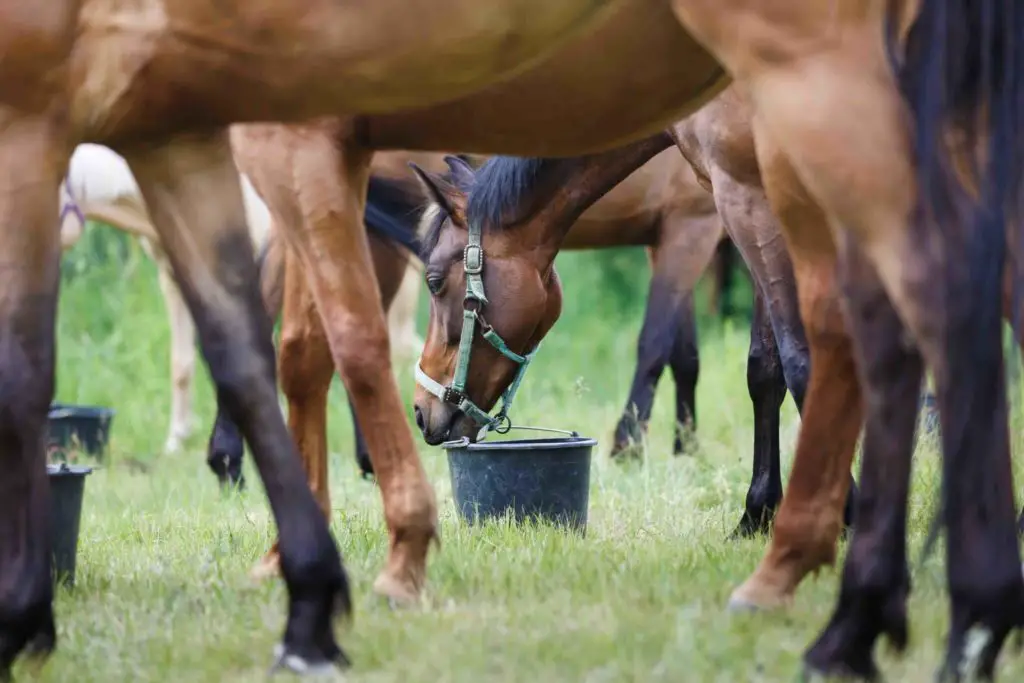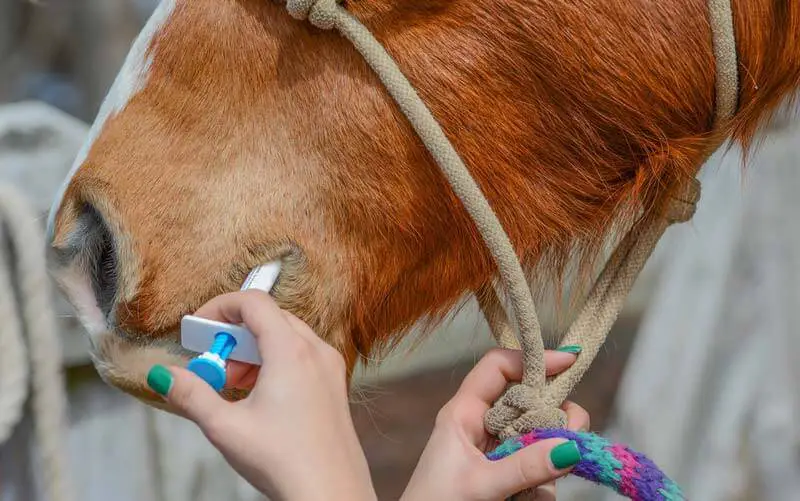A sudden change in diet, including grain, hay and pasture, can lead to colic. When making dietary changes, they must be made gradually to ensure the microbial population in your horse’s hindgut has sufficient time to adjust.
Unfortunately, horse has the most poorly designed digestive system out of any animal, which makes them highly susceptible to health problems related to diet and dietary changes, including colic. However, there are simple steps you can take to prevent this from occurring.
But, first, it’s important to understand why rapid feed changes can cause colic.

What happens when I change my horse’s diet too quickly?
If your horse’s digestive system is exposed to a new diet suddenly, it can lead to a sudden growth of bacteria that are needed to break down the new feed. This, in turn changes the balance of good and bad bacteria (a bit like inner health plus…..lol) in the hindgut, which can result in a severe bout of colic. Instead, when making any dietary changes, new grain, hay or pasture should be introduced over 1-2 weeks.
How should I change grain?
At certain times of year, you may need to change the commercial horse feed your horse consumes. For example, when preparing them for competition. To make this change safely, you should replace approximately 25% of their current feed with their new feed every other day. This should also be done when changing “batches” of hay from the same suppliers.
How should I change hay or pasture?
While there are published studies on changing commercial grain-based horse feeds, we recommend you follow a similar rule of thumb as outlined above when introducing new hay. Simply replace approximately 25% of your horse’s hay ration with their new hay every other day.
Turnout to a new pasture can be dangerous, particularly during the transition from Winter to Spring, (as explained in this article). Turnout should start with one hour per day in the early morning and increased in half hour increments each day following.
When making dietary changes, you should consider consulting your veterinarian or a qualified equine nutritionist. If you notice any changes in manure output, such as diarrhoea, seek advice from a Veterinarian.



